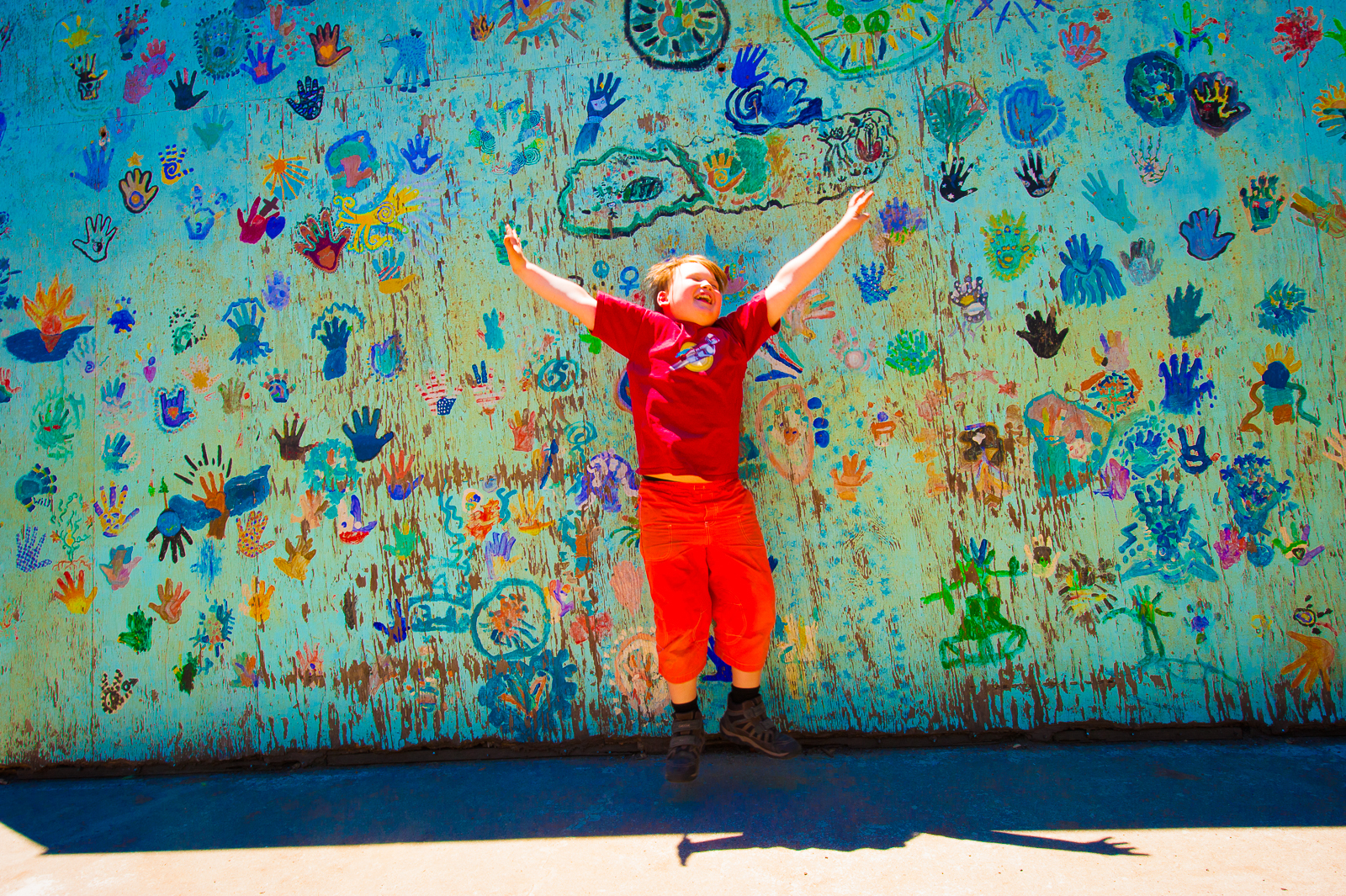Making choices with increasing responsibility and social awareness, and cognitive development
Grades K through 4th
Ages 4–9
Children in the primary grades enter a stage of life brimming with wonder, awe, curiosity and energy. At Peninsula, children generally ages 4–9 are grouped in classrooms to enhance their social, emotional and cognitive development. Here they begin to exercise more independence and make choices within a more sophisticated framework of available activities. They can now choose exciting activities of interest to them outside the classroom, such as science exploration, math enrichment in the math room, art, library, woodshop, clay, weaving, and music in their respective studios.
In addition to abundant active free play throughout our beautiful campus, physical education on the playing fields or in the indoor playspace is provided. The first overnight camping trips are held, children take responsibility for work jobs in the broader school community, and daily class meetings become even more important in the development of each child and the class as a community.
“I really love that kids get to be kids."
— 8 year-old
Academically, we consider skills in reading, writing, and math as vehicles to further intellectual curiosity and independence. Our teachers create dynamic learning experiences that focus on developing cognitive flexibility, social and cultural fluency, collaborative inquiry, precision of thought and persistence.
Peninsula's teachers are uniquely attuned to each child's intellectual development. Because children work at individual paces, teachers monitor progress and assess needs while engaging children with ideas and questions, encouraging and assisting each child to greater independence in their intellectual growth.
Reading, writing and math are approached from a number of perspectives: they are woven into class projects and learning activities, and they are presented through games, manipulatives, and other experiential ways of learning both in the classroom and in the studios.
MATH
In the Primary classrooms, teacher-curated resources in math harness children's interests and enable them to explore, question, reason, construct meaning and problem solve. In the process, they develop mathematical concepts, skills, and practices. Children explore number & algebraic thinking, geometry, measurement and data concepts. Concrete tools are employed to illuminate concepts and develop skills.
A sequence is followed in each content area as children progress through the Primary program. For example, children’s understanding of number and algebraic thinking develops from foundational counting skills (forward, backward, skip counting, etc.) to understanding place value (meaning of 0, grouping, regrouping); from simple computation (add & subtracts to 20) to multiplication and division (facts connected to 9x9) to computation of large numbers (multi-digit); from whole numbers to rational numbers (fractions and decimals). Connections are made to real world situations so children see mathematics as part of everyday life.
LITERACY
Literacy instruction focuses on developing a love for and a life-long habit of reading and writing and develops critical thinkers and active learners.
In the early childhood Primary classrooms (4-year-olds through 7-and 8-year-olds) reading is taught through a natural approach which includes shared reading of charts, songs, and big books, class read-alouds and independent reading time. Children also receive small group guided reading instruction which are teacher-facilitated and flexible, attending to the specific needs and interests of students.
Children in older Primary classrooms (7- and 8-year-olds through 9- and 10-year-olds) also engage in guided reading groups which build decoding, fluency, and comprehension strategies and which allow teachers to continually monitor reading development. Many classes in older Primary classrooms participate in book clubs where children choose texts to practice reading strategies and discussion skills in small groups.
Writing instruction is taught through a workshop model, focusing on the process of writing. This approach offers children opportunities to brainstorm, draft, revise, edit, publish, and celebrate their fiction and nonfiction writing craft. Children learn to analyze other author’s writing, develop writing strategies in different genres, and participate in giving and receiving feedback to inform revisions. Instruction involves guided writing, including modeling, skill practice, coaching, and strategy groups. Children view themselves as writers, developing their voices.
Phonemic awareness and phonics instruction are taught with a multi-sensory approach in order to meet the various learning styles of all students. They are taught in an explicit and systematic manner guiding children through the developmental stages of reading and spelling.
Assistant or associate teachers support head teachers in the classroom each day and work directly with small groups of children in literacy and math work. Some classes in the Primary program have two assistants in addition to the head teacher.
A full-time reading specialist works with small groups of children who need extra support and specialized instruction.
Class meetings, held every day, may appear simple but a close look reveals children engaging in social democracy, finding their voice, learning how to resolve conflicts, and experiencing viscerally the balance of individuality, diversity and community. It is here, while sharing, discussing a disagreement on the playing field, choosing and planning class activities, producing a play, or sponsoring a carnival, that children learn to be confident contributors, ethical leaders and compassionate citizens.
Beginning in the K–1 class, children choose the activities they participate in outside of the classroom including art, woodshop, clay, weaving, music, library, math and science. These classes occur each day for one hour. This is one way that children learn how to make choices based on their affinities, where they learn about taking responsibility for their choices, and where they discover passions and interests that may last a lifetime.
An integrated day allows children to learn and develop skills through a variety of approaches, allowing children to naturally construct meaning. In this way, learning becomes a part of children, fosters deep understanding, and connects children to the world around them.




